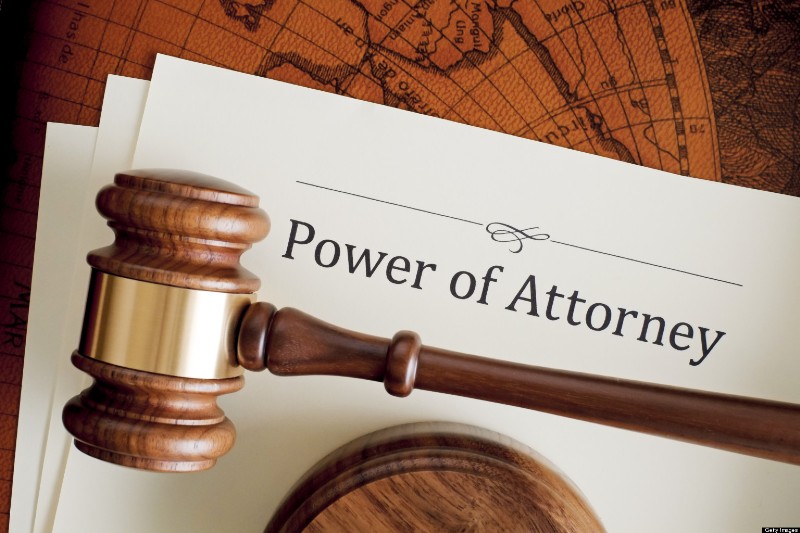
Legal documents can really be a headache for most of us because legal lingo and limitations are not that easy to understand. In order to fully understand the functionality of these papers you need to have some legal help from the experts. But, we are here to make the initial journey a bit easier for you by breaking down some complex procedures into a few simple steps. Be it a partnership agreement, an FSSAI registration or a general power of attorney document paper, we have it all sorted and listed here for your convenience. In this article, we will break down the steps of assigning a general power of attorney for you.
What is a general power attorney?
To start with, we need to help you understand who is a general power of attorney and what he can do. A general power of attorney is someone who you give the rights to make choices on your behalf for your agency, property, bank transactions etc. via written authorisation or a legal contract. General power of attorney could be assigned for one or multiple purposes. You can authorize one person for different purposes to take decisions on behalf of you.
Types of power of attorney:
General power of attorney:
You already know by now what a general power of attorney is capable of doing for you. He can take any decision on behalf of you if you provide the concerned person with right legal documents that declare as the general power of attorney.
Special power of attorney:
In this, principal transfers powers to the Attorney to act on behalf only for some specific purposes and the power shall cease to exist as soon as the purpose is done away with. The transaction can be single or multiple as and when required.
Durable power of attorney:
When you make a durable Power of Attorney or specify the durability factor in the deed, it facilitates that the powers of the Attorney will remain active if the principal becomes incapacitated. Usually, the powers of the Attorney is nullified if the principal is incapacitated if the durable condition is not covered.
Uses:
- Will represent you on your behalf whenever required.
- When a person is not physically or mentally available to carry out responsibilities.
- NRIs require the most of these people to take charge on behalf of them.
- Delegation of work always helps with anyone who has a lot of things to take care of.
Powers:
- Powers regarding running a business.
- Property and real estate business powers.
- Dealing in selling and buying of banks, investments etc.
- Power to sign and validate contracts and agreements.
- Other miscellaneous legal works.
What is the difference between a general and special power of attorney?
A general power of attorney gives generic or a broader authorization to the agent. In other words, the agent is allowed to make medical decisions, legal choices, or financial or business decisions. A special power of attorney streamlines or channelizes the choices that an agent can make. You are even allowed to enter into several different Power of attorney contracts, with different agents for each matter that you need someone to take care of. For instance, you can very much create a special power of attorney which only allows your wife or husband to make medical decisions on your behalf. You can enter into another Power of attorney contract which would grant a business partner the ability to use a few of your business assets to take the business to places.
How does it work?
The principal has to either download or buy general power of attorney templates. Initially the template of format can be accessed through either one of the two methods. The principal should also make sure that they belong to the state of residence. Power of attorney papers are very significant, and the principal should not casually presume that the documents designed are surely of the correct kind. Verification and cross-checking of the General Power of Attorney documents is the first step towards any further authorization.
The first step for a principal to start the process should always be finding a family law counsel in their state of residence. If the required legal fees are way beyond what the principal can afford, they can always opt for visiting a legal services office. Or else, the principal can go to the Legal Services Corporation website and get in touch with a legal aide. Principals who are eligible can avail services free of any cost.
In many states, it is a mandate to get the principal’s signature notarized. In other places, the witness’s signature must also be notarized. Additionally, there are some legal provisions that are not generally applicable.
Procedures and laws vary based on the principal’s current location and residence. While the durable Power Of Attorney is widely favored, there are some powers that the principal cannot delegate, such as formulating or changing a will, contracting a marriage, or casting a vote.
FAQs:
Can the general power of attorney holder sell the property?
To look at facts and laws, in India a general power of attorney cannot sell the property all by himself even if he is registered under the sub-registrar. Even the most current judgment of the Supreme Court Of India does not validate the sale of any property by general power of attorney.
What is the procedure for getting general power of attorney documents in India?
- Draft the contract with some legal help from a good lawyer or download the format from the website.
- Submit the paperwork to the sub-registrar.
- Attach the other required documents along with it.
- Attest the papers for the general power of attorney in front of the registrar.
- Attest the papers with two other witnesses.
What supporting documents are required for a general power of attorney document?
- Passport size photos of both the parties.
- Address proof of both parties.
- ID proofs like driving license, Aadhaar card or etc. of both parties.
- Electricity bill or tax receipt of the property in question.
Which power of attorney is the best?
The general power of attorney papers authorizes the person to access a lot more powers over a wide range of categories like medical, property or business. If you want to maximize your attorney’s powers over your assets then the general power of attorney is definitely the best option.
Does next of kin override power of attorney?
The next of kin is usually common in use but he or she has no legal powers or responsibilities like the general power of attorney.








